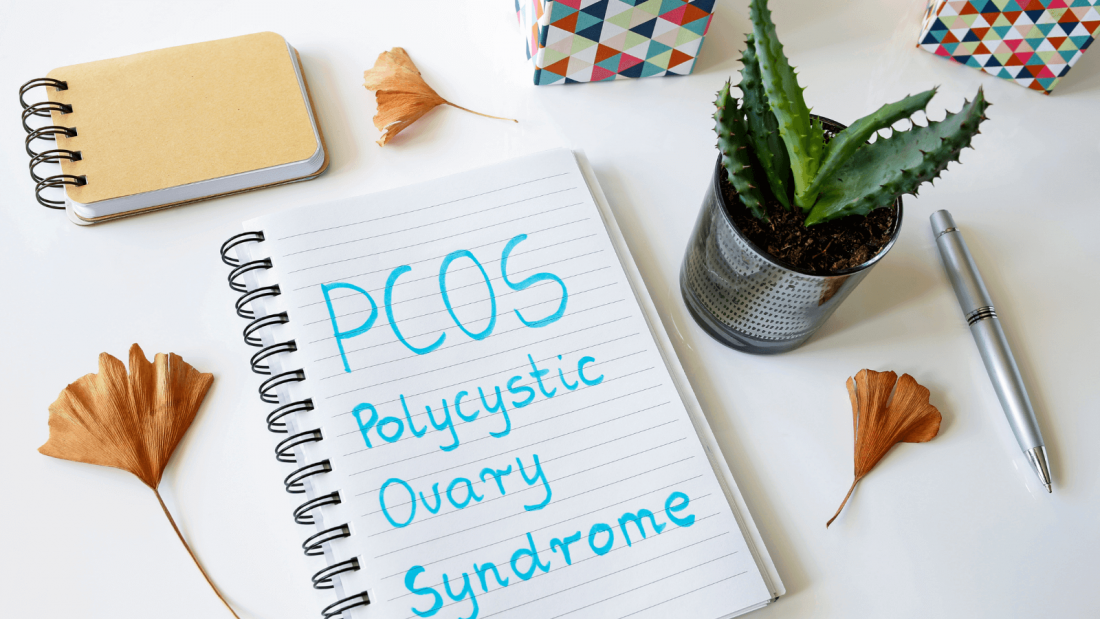Polycystic Ovary Syndrome (PCOS) is a condition that affects one in 10 women of childbearing age, so why do we know so little about it? Here are the answers to the PCOS questions that women have been asking Dr Google.

When it comes to gynaecological problems, Black women are disproportionately affected. Like Endometriosis and Fibroids, data shows that PCOS is one of those conditions that Black and Asian women are likely to suffer more than our white counterparts for various reasons. PCOS is a common condition, yet one that isn’t frequently discussed, leaving many people feeling bewildered and overwhelmed.
Add to the fact Black women typically suffer symptoms for a considerable time before getting diagnosed, then it’s no wonder that many women turn to Dr Google to make sense of their PCOS symptoms.
In this article, we collate expert responses to debunk the myths surrounding the condition and answer the most frequently asked PCOS-related questions (based on Google search terms).
What is PCOS?
First and foremost, what exactly is PCOS? PCOS stands for Polycystic Ovary Syndrome and it is a condition that results from a hormonal imbalance and metabolism problems. Together, these issues can impact your overall health and appearance, as well as causing infertility in extreme cases.
PCOS causes certain irregularities that affect how a person’s ovaries work. These factors can lead to irregular periods, increased amounts of androgen, or ‘male’ hormone, in your body, and polycystic ovaries. If you have polycystic ovaries, this means that they will become enlarged and contain fluid-filled sacs (follicles, not cysts as the name would imply) that surround your eggs.
The follicles inside the ovaries are, in fact, underdeveloped sacs in which eggs are meant to develop. If you have PCOS, these sacs are unable to release eggs and trigger ovulation. Other than decreasing chances of fertility, they are harmless.
Who does it affect?
As the condition often goes undiagnosed, the figures are hard to know for sure. However, it is estimated that PCOS affects around one in 10 women of childbearing age.
Although PCOS could occur at any age after puberty, most women do not start seeing any symptoms until their 20s and 30s, or when they start trying for a baby. For most, the symptoms are quite unnoticeable, and therefore might only be detected at this late stage—especially if people are unaware of the condition.
Anyone with ovaries can be affected by PCOS and it is a condition that affects all ethnic groups. However, certain things can heighten the risk, including obesity or a family history of PCOS.
“Polycystic Ovary Syndrome is a condition that results from a hormonal imbalance and metabolism problems… these issues can cause infertility in extreme cases.”
What causes PCOS?
The exact causes of this condition are not certain, although, as discussed above, genetics play a strong role. Another likely factor is hormonal imbalance, particularly:
Higher than average levels of insulin; which means that many women with PCOS develop insulin resistance, especially if they are overweight or obese. Over time, this resistance could also result in type 2 diabetes.
Higher than average levels of androgens; which prevents women’s ovaries from releasing an egg during each menstrual cycle. Excess androgen can also cause acne and extra hair growth—these are two tell-tale signs of PCOS.
What are the symptoms?
Each person might react differently to PCOS, and in some instances, no symptoms are visible at all. However, some main symptoms include:
- Irregular periods: people with PCOS are likely to miss periods completely or experience very few per year. In some cases, menstrual periods disappear altogether.
- Acne: PCOS related acne is most common on the chest, upper back, and face.
- Excess hair growth: hair growth, or “hirsutism” affects around 70 per cent of people who suffer from PCOS, so it’s a key symptom to look out for! If you notice excess hair growing in places such as your face or chin, this could be a sign of PCOS.
- Thinning hair or hair loss: on the other end of the spectrum, some women experience a thinning or loss of hair, akin to male-pattern baldness.
- Weight gain: putting on weight unexpectedly or having serious difficulty losing weight is a common symptom.
- Skin tags: small, excess flaps of skin appearing on your body, particularly in the armpits or on your neck.
- Darkening of skin: particularly around neck creases, in the groin, or under breasts.

How is PCOS diagnosed?
Due to a general lack of awareness, paired with the often subtle or invisible symptoms, PCOS often goes unnoticed. What’s more, there is no single test to determine whether or not someone has it, meaning that it often falls under the radar even when someone visits their doctor with the symptoms.
When it is diagnosed, the patient will undergo various medical tests, including a physical exam, a pelvic exam, a pelvic ultrasound (sonogram), and blood tests. If you have more than one strong symptom, and other conditions are ruled out after these examinations, you are then likely to be diagnosed with PCOS.
As so many people go undiagnosed, initiatives such as PCOS awareness month are more important than ever. Raising awareness about the condition could lead to a medical diagnosis for many people who would otherwise have to suffer in silence.
Can PCOS be cured?
Unfortunately, it cannot be completely cured. Saying this, the condition can be managed, and with help from your doctor and a personalised plan which will help to increase the chances of you being able to have children and avoid other serious health problems later in life.
If you are diagnosed with PCOS, your doctor will advise you on both medicines you can take to assist the condition, and steps that you can take yourself at home.
Can PCOS cause a miscarriage?
Unfortunately, PCOS can cause some serious problems when it comes to pregnancy, and the chances of having a miscarriage are higher for women with the condition. However, if you are planning on becoming pregnant, there are several things you can do to increase your chances of a smooth pregnancy, regardless of your condition.
Reaching a healthy weight before pregnancy is important, as is reaching a healthy blood sugar level. Be sure to take folic acid (as much as your doctor recommends) and talk to your doctor each step of the way to create a personalised pregnancy plan. With the right medical advice and planning, from vitamin supplements to preparing your hospital bag checklist, it is still possible to have a smooth and successful pregnancy.
Now that you know the fundamentals, it’s important to keep the conversation going! If you think you might be suffering from any of the symptoms, visit your local health professional as soon as possible.
Sources












